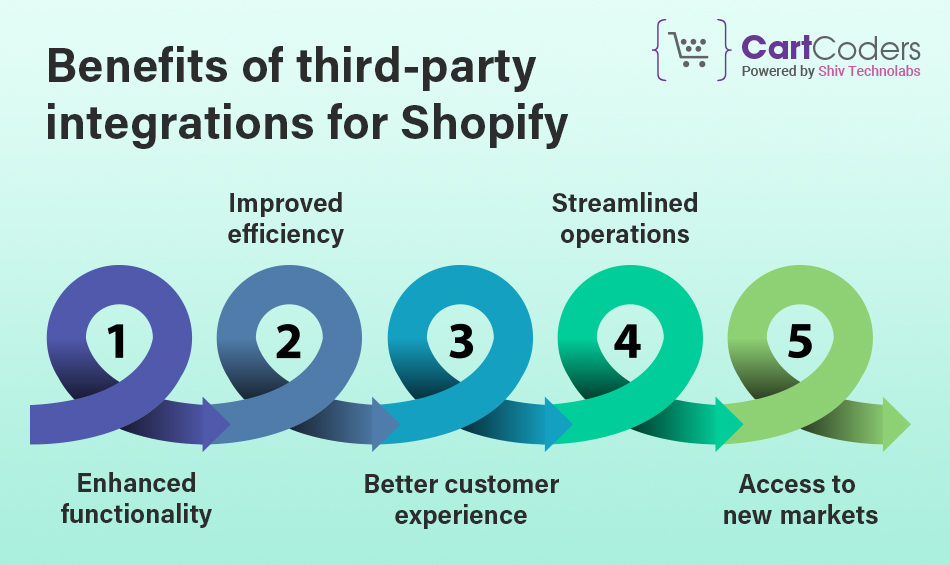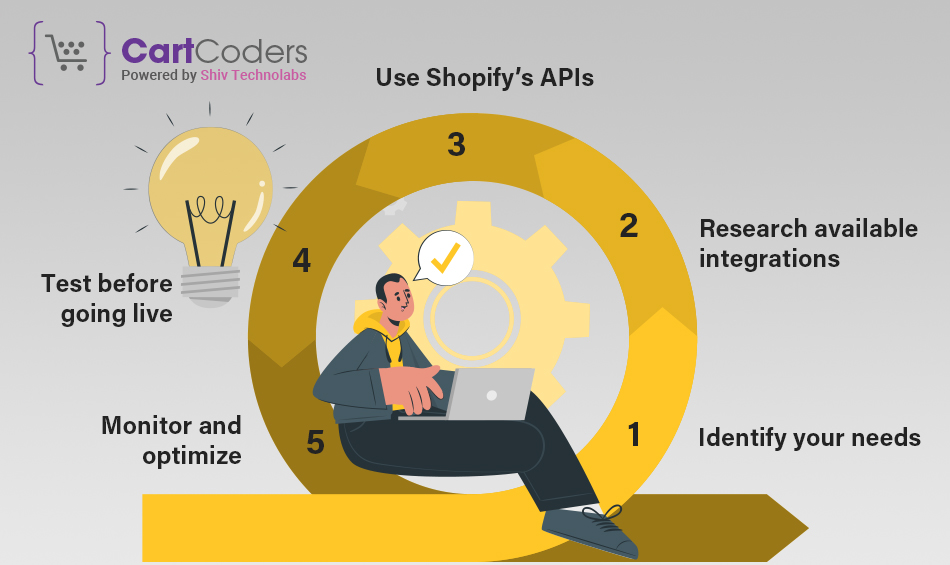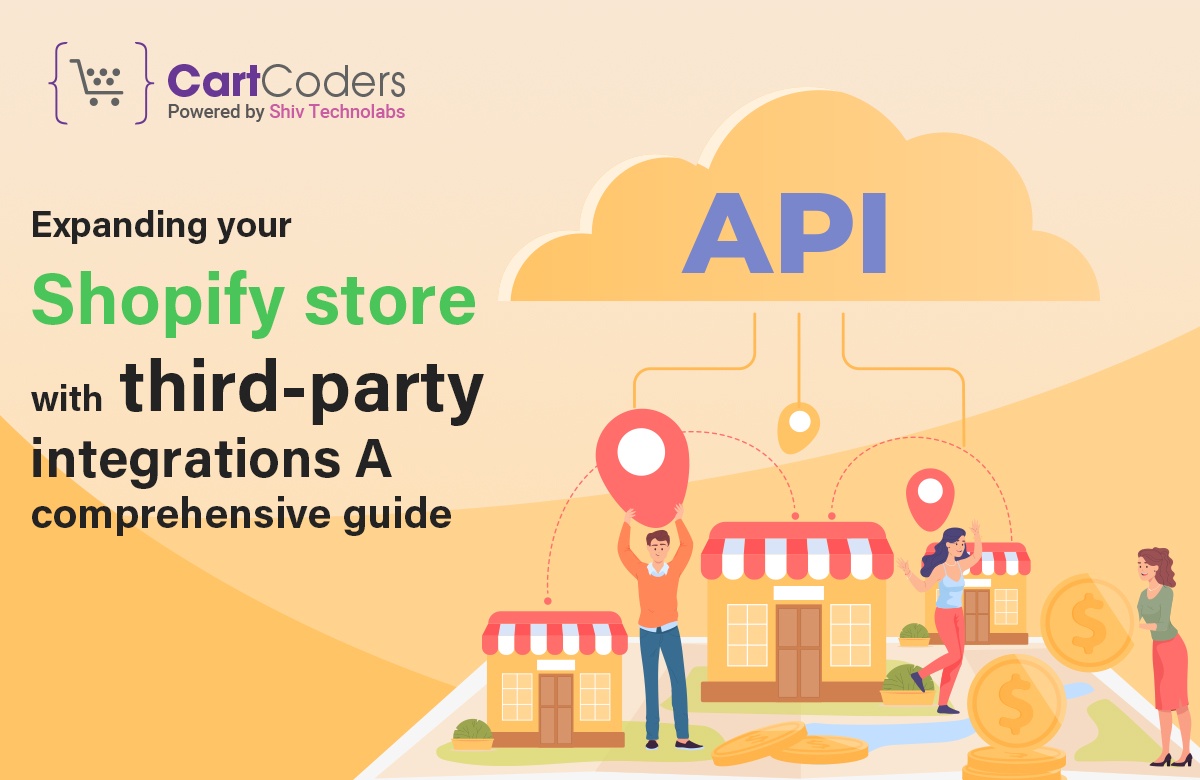In today’s highly competitive e-commerce world, just having an online store will not suffice. For your Shopify store to excel and deliver a complete shopping experience, it must have more capabilities to meet the needs of modern consumers.
This is the point where third-party integration come in, powering your Shopify store with features and capabilities that go beyond the basic features. The guide elaborates on how to grow your Shopify store using third-party integration, highlighting the need to use Shopify app integration services to simplify this process.
Understanding Third-party Integration
Third-party integration are about integrating external applications with your Shopify store to expand its capabilities. These can include applications for accounting, CRM, inventory management, marketing etc.
According to Shopify, about 80% of Shopify retailers use third-party apps. integration provide flawless data transferring and function upgrading, turning your store into a more dynamic and productive marketplace.
Benefits of Third-party Integration for Shopify

Enhanced functionality
The integration of the third party applications into your Shopify store gives you an opportunity of having various functionalities that might not be available initially. These would be, for example, advanced reporting tools, advanced SEO features or advanced customer relationship management systems. With these integration, you can customize your shop to suit a particular requirement, thus improving customer service and enhancing the capabilities of your platform.
Improved efficiency
Automation is the main advantage of third-party integration. Tasks like data entry, inventory updates, and order processing can be automated using integration with the different software. It eliminates the need for manual operation, minimizes the chances of human mistakes, and allows your team to work on other strategic activities that can promote the growth of the business.
Better customer experience
Shopify app integration services can significantly improve how customers interact with your site. For example, integrating AI-driven chatbots can enhance customer support, while personalized marketing tools can deliver tailored shopping experiences. These improvements can lead to increased customer satisfaction, repeat business, and higher conversion rates.
Streamlined operations
Linking your Shopify store with other business systems like ERP, CRM, or accounting software helps in creating a unified platform where data flows seamlessly between systems. This results in a cohesive environment where customer data, inventory levels, and financials are always up to date and accurate, minimizing discrepancies and enhancing decision-making capabilities.
Access to new markets
Third-party integration can enable features and functionalities that allow you to expand your reach into new markets. For example, integrating with international payment gateways, multi-language support tools, or global shipping providers can help you easily sell to customers around the world. This expansion is facilitated by adapting your store to meet diverse customer needs and complying with local regulations, effectively broadening your market presence.
How to Implement Third-party Integration in Shopify

Identify your needs
Before you start integrating, identify the areas within your Shopify store that need enhancement. Whether it’s email marketing, customer support, accounting, or inventory management, understanding your needs will help you choose the right integration.
Research available integration
Shopify’s App Store offers a wide range of plugins that can be easily integrated with your store. Browse through the categories relevant to your needs and read reviews to gauge the effectiveness of different apps.
Use Shopify’s APIs
For more custom needs, you might consider using Shopify’s extensive API library. This allows for deeper integration tailored specifically to your business requirements. Shopify integration with APIs might require technical expertise; however, it offers more control over how the integration works with your store.
Test before going live
Before fully integrating an application into your live store, test it in a development environment. This will help you identify any issues that could affect your store’s performance or user experience.
Monitor and optimize
After integration, continuously monitor the app’s performance and its impact on your store. Analytics can help you understand how the integration is contributing to your store's goals, and adjustments might be necessary to optimize performance.
Conclusion
Expanding your Shopify store with third-party integration is a powerful way to enhance functionality, improve efficiency, and offer a superior shopping experience to your customers. Whether you’re integrating existing apps from the Shopify App Store or developing custom solutions via Shopify’s APIs, the right approach depends on your specific needs and capabilities.
Hiring CartCoders will allow you to focus more on growing your business and less on the technical complexities of third-party applications. By carefully planning and executing your integration strategy, you can significantly enhance your Shopify store’s capabilities and your business’s overall success.


No comments yet